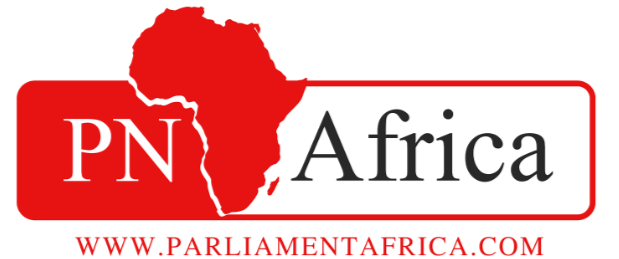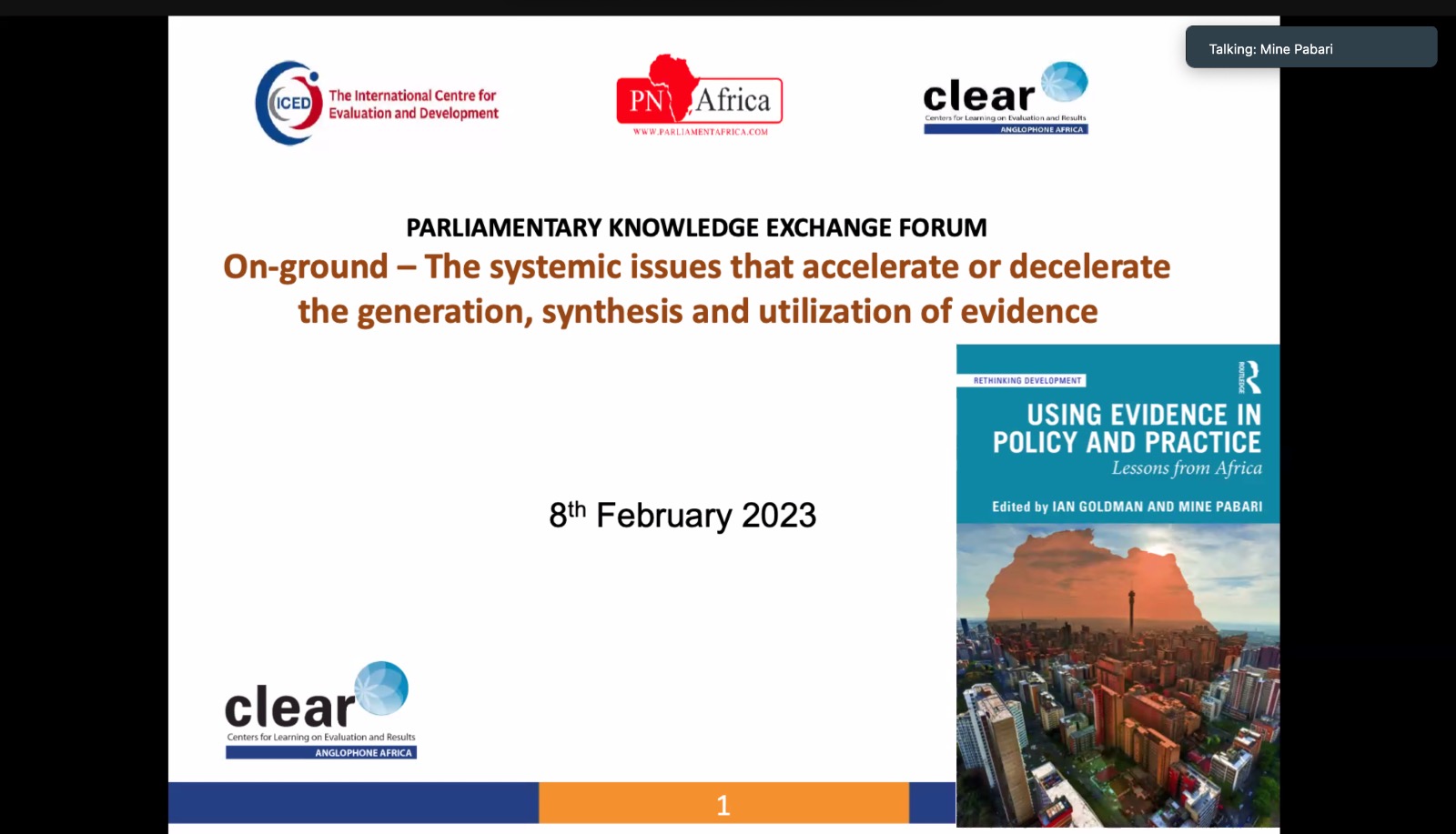By Susuana N. O. Quartey
Parliaments and civil society convened on 8th February, 2023 to discuss working together to enhance evidence uptake in the work of parliament across Africa.
The Parliamentary Knowledge Exchange Forum, which was organised in partnership with the international center for Evaluation and Development (ICED) and the Center for Learning on Evaluation and Results (CLEAR-AA), brought together selected parliaments, members of staff and civil society organisations from Ghana, Zambia, Malawi, Kenya, Sierra Leone and The Gambia to share and exchange information.
Evidence based decision-making processes mostly rely on the use of available research, be it experiential evidence from the field or relevant contextual evidence, for making decisions on policies and programs of government. Within most African parliaments, however, there are often challenges of availability, accessibility and affordability of synthesized evidence and gaps for legislative action, which result in duplication of efforts rather than complementing existing structures.
This event was first launched in July 2022 in the Parliament of Ghana, Accra, giving the opportunity to the speaker of Ghana’s Parliament and other Leaders to discuss some of the major challenges that is hindering the use of evidence to inform the work of parliament.
The session was moderated by Roberta Blankson, a Senior Program Officer at ICED, who welcomed participants and gave the opportunity for both Dr. David Ameyaw, Executive Director of ICED and Samuel Obeng, Executive Director of PNAfrica to give their opening remarks. Dr. David Ameyaw in his opening remark, commented that evidence is an important tool in the field of work that civil societies find themselves in, and therefore they require some attention.
He added that, civil society organisations have overly focused on outcomes rather than ensuring impact of such initiatives which is most important when it comes to ensuring evidence use by parliaments. There should be evidence behind the impact of events or workshops organized. “Policy makers do not read published research and you can’t write a story based on just one research or article”, Dr. David Ameyaw.
He concluded that, we need to shift our focus into doing more Evidence-Based Decision-Making Programs. Knowing the protocols or guidelines one needs to follow or go through, will help with our engagements with parliament.
Sammy Obeng, who is an expert in parliamentary development and the Executive Director of the PNAfrica in his opening remarks added that, even though we may have different parliaments (unicameral or bi-cameral) within our continent, there’s one problem that consistently runs through almost all parliaments and that is, the lack of resources which limits the work of parliament to carry out their research, backed with evidence. According to him, it is difficult to find platforms that help people to access important information about Evidence-based Research for our space, in order for civil societies to be more involved with parliament.
He added, “PNAfrica considers this as a very timely intervention and entreats all civil society organizations and parliaments to look at how we can have a fantastic conversation and innovative ways to ensure that evidence plays a major role in the decision-making process of the legislation”.Dr. Mine Pabari, a Visiting Research Fellow at CLEAR Anglophone Africa presented on the topic,“On-Ground: The systematic issues that accelerate or decelerate the generation, synthesis and utilization of evidence”.
In her presentation, she introduced a research project published in the book; “Using Evidence for Policy and Practice- Lessons from Africa”, and supported by Hewlett Foundation. She highlighted some cases from 6 West African Countries linked with the Twende Mbele(Twende Mbele engages with a variety of national governments who are interested in using Monitoring & Evaluation to strengthen government performance and accountability to citizens.) countries and also explored the use of different types of evidence and that includes, evaluations, research, rapid synthesis and citizens engagement. She went further, demonstrating what is and the need to use a demand-driven lens which is a good way for policy makers to identify factors that enable or hinder the use of evidence. Starting with demand for evidence, there are 2 factors (internal and external) to consider when it comes to context which influences evidence use. The external context focuses on intra-relationship with state/non-state agents, while the internal focuses on organizational capacity, the culture, management and core resources.
First, the evidence gets generated and we build upon the interventions to use to create the awareness and the change mechanism we would want to make use and the fact that there needs to be constant feedback in moderation for the framework. Dr. Pabari further explained the need to understand the root causes of a problem and if there are options to dealing with them, taking into consideration the effectiveness, making difficult choices and deciding on how to allocate our budget. “Resources are scarce and evidence use really requires significant investment in resources and time”- added Dr. Pabari.
During the experience sharing session, selected Speakers took turns to share lessons from their work with parliaments in sharing evidence and ensuring the use of such evidence. Agnes Titriku, a Programs Manager at the African center for Parliamentary Afairs (ACEPA) shared some challenges and opportunities for parliaments to benefit from such programs as this, that bring evidence to the doorstep of parliaments, especially as there is an increasing interest in the work of parliaments in Africa. According to Agnes, beyond the utterances, we don’t see active measures taken by parliaments and parliamentarians, despite some steps taken by research departments to build capacity. “There is a lot to be done. The knowledge exchange forum has improved the engagements between CSOs”, she added.
Other Speakers included Dr. Leslie Casely-Hayford who is a Social Development Consultant at Associates for Change (Ghana), Fredrick Yangful, a Program Officer at the Private Enterprise Federation (PEF-Ghana), who both shared experiences from their work with parliaments in Ghana and across the West African sub-region, highlighting selected cases of knowledge evidence exchange between civil society, research think tanks and parliaments in Africa. Both speakers provided some recommendations to help advance the initiative which will bring together CSOs and parliaments for evidence use.
The project seeks to drive civil society and parliaments to embrace evidence use in the decisions. This will be achieved through collaboration between stakeholders within the parliamentary ecosystem and donors who are willing to support the use of evidence in strengthening parliamentary democracy and open parliament in Africa.



